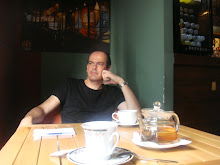I am not an American, nor do I live in the U.S., so maybe my voice should not be heard in the debate, but I simply had to get this off my chest.
As the world was yet again watching in amazement as a Korean madman gunned down 32 people in Virginia, followed by an avalanche of expressions of grief and sorrow from the entire nation, I was quite honestly asking myself "So what ?".
I know that I am supposed to say that my heart is with the victims, but it is not. I am just refusing to feel any further compassion on the misfortunes of a nation that condones the ownership of guns as if it were children's toys. Remember the Nancy Sinatra song ?
These boots are made for walking, and that's just what they'll do; one of these days these boots are gonna walk all over you."
Well, in my opinion, like boots are made for walking, guns are made for killing and that's just what they'll do. If anyone can point out any other use there is to a gun, I'll be glad to learn about it. In the Virginia shooting, there were two guns and people got killed, so where is the surprise ? Did the victims get killed by weapons that were purchased in the underground circuit ? No, they weren't. The first weapon apparently was purchased by Cho in a pawnshop near the campus, after which he went to Wal-Mart to buy a few rounds of ammunition and later on he went to Raonoke to buy the second gun. As an "alien resident", Cho had the "bad luck" of having to show both his driving license AND his green card for these purchases. If he were a native American, Cho could have purchased these weapons even if he'd been twelve years old in Virginia. So what is all the outpouring of grief about, I ask myself ? As long as people cherish their guns as if they were a phallic symbol and as long as there is this crazy twist in the mind linking weapons to freedom, the nation is going to be complicit to murders to come.
And where are all those Christians filling the churches and singing the praise of the Lord ? Did the Lord not command: "Thou shall not kill" ? So why would you allow a Constitution that gives any nitwit, be he Christian, Muslim, headen or George Bush himself, free access to tools that have only this use: to kill ? How come nobody has ever been able to kill the Second Amendment ? In a civilized world, which I consider the U.S. till further notice still to be part of, there is no need for a weapon to make it through the day. What freedom is it that needs to be defended by every citizen by himself ? I don't want that kind of freedom. I am not living in an ideal state myself (no-one is), and "shit happens" also here, but when we have laws dating back to Napoleonic times and they are outdated, we change them. The U.S seems to think it is a worse sacrilege to touch upon a law instituted at the time of the Founding Fathers than it is to kill cold-blooded a couple of dozen of people. Where I live, there is no ban on weapons either, but don't imagine walking in a shop with your driver's license and walking out with enough gun-power for a game of "Columbine Revisited", without anyone even so little as asking you what you gonna use that for.
If the U.S. (and pardon me for not distinguishing in this case between the defenders and contesters of the current gun-laws, for there is only one reality: guns ARE a free commodity) continues to refuse to cope with a clear and present threat on people's lives by giving in to the National Rifle Association lobbyists , I refuse to further mourn any victims of this kind of utterly senseless, state-licensed violence for lack of trying to deal with it. There has not even been a start of trying.








